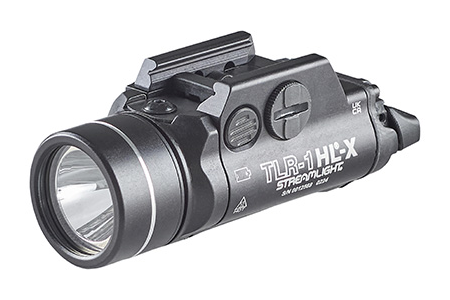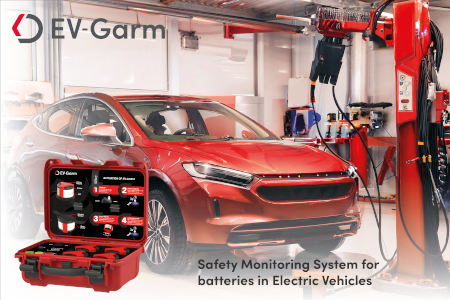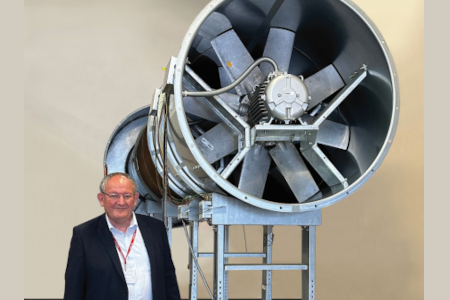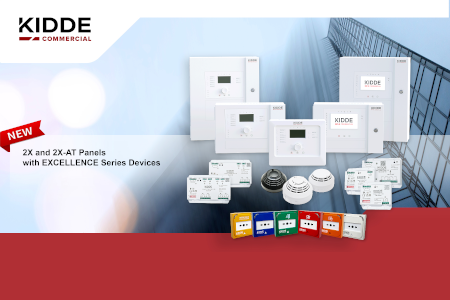Shinsuke Kubo, Managing Director, Hochiki Europe sits down with Fire Buyer magazine to deep dive into enhanced fire detection technology and its role in data centres
At the helm of Hochiki Europe is Shinsuke Kubo, a leader in the life safety industry, currently serving as Managing Director. Kubo’s vast experience in commercial strategy and product management has been instrumental in his success at Hochiki. Prior to this role, he served as a Director of Business Development at Hochiki America Corporation from 2011-2018 and then as the Commercial Director for Hochiki Europe, Middle East, Africa, and India from 2018-2022. He has played an integral role in driving growth and innovation within the company during both roles. Kubo’s experience lends itself to be the perfect expert in all things life safety.
How can we harness the power of hybrid wireless systems, especially in applications like data centres?
In a recent interview with Kubo, we discussed the benefits of hybrid wireless systems in fire detection, particularly in relation to data centres. He emphasised that hybrid wireless systems achieve a balance by utilising wired connections for critical devices, such as the fire control panel and the loop connecting the wired-to-wireless translator module. This strategy ensures a consistent communication and power supply path, effectively addressing potential interference or signal loss concerns that may affect purely wireless systems. He further highlighted, “the true strength of hybrid wireless systems lies in their ease of installation, particularly in data centres, where retrofitting or navigating complex wiring conditions can pose challenges. By employing wireless devices, these systems eliminate the necessity for routing cables through walls and ceilings, resulting in time savings and reduced disruptions to existing structures within these environments.”
How important are strategic partnerships when it comes to innovating as a manufacturer?
During the interview, Kubo acknowledged the complexities that manufacturers face in keeping up with evolving fire safety regulations across international markets.
“Regional differences, frequent updates and varying certification requirements pose significant challenges for manufacturers in ensuring global compliance.”
To navigate these complexities, Kubo emphasised the importance of building strong partnerships with reputable testing laboratories and leveraging their expertise. By adopting a proactive approach and working closely with these partners, manufacturers can streamline certification processes for data centre fire safety products across multiple markets. This collaborative strategy helps ensure that products remain compliant, reliable, and competitive in the ever-evolving global marketplace.
What role do intelligent sensors play in reducing false alarms and enhancing accuracy?
Intelligent sensors are crucial in enhancing accuracy and reducing false alarms within data centre environments. These sensors utilise advanced algorithms and multi-criteria detection techniques to analyse various environmental factors, such as smoke density, heat, and gas levels in the case of CO multi sensors. Kubo explained, “By combining multiple sensor inputs, intelligent sensors can effectively differentiate between real fire events and potential false alarm sources, like cooking fumes or dust. They also continuously self-adjust sensitivity levels based on ambient conditions, ensuring optimal performance in these critical spaces”.
Kubo then went on to emphasise that this intelligent approach minimises false alarm disruptions while maintaining high responsiveness to genuine fire threats. In turn, this improves overall system reliability and user confidence, providing enhanced protection for valuable data centre infrastructure.
How does this impact a challenging data centre environment?
During the interview, Kubo addressed the applicability of intelligent sensors in data centre environments that tend to be clean. Kubo confirmed that intelligent sensors, particularly true multi-sensors, are indeed highly effective in such environments. He went on to explain, “Hochiki’s multi-criteria detection technologies and adaptive algorithms enable these sensors to differentiate between a real fire, transient signals, and false alarms. This capability is particularly crucial in data centres where sensitive electronic equipment can produce misleading signals.”
Emphasising the adaptability of Hochiki’s ACD Multi-Sensor with CO detection, Kubo noted that each sensor’ sensitivity can be independently adjusted based on its location and potential exposure to false or transient phenomena. With 24 EN54 – approved modes of operation and a SMART algorithm that allows the sensor to learn from its environment, it can significantly minimise disruptive false alarms while ensuring responsiveness to genuine threats. Kubo concluded, “This makes intelligent multi-sensors ideal for industrial settings, commercial kitchens, and other environments with high concentrations of particulates, where traditional smoke detectors may struggle.”
What are the biggest causes of fires in this environment?
Customer feedback highlighted several significant causes of fires in these environments, including electrical malfunctions, defective heating systems, improper storage of flammable materials, hot work operations like welding, and human error or negligence. To mitigate these risks in data centres and other commercial and industrial settings, Kubo suggested conducting regular inspections and maintenance of electrical and heating systems. Additionally, he emphasised the importance of implementing strict protocols for handling and storing flammable materials, enforcing hot work permit procedures, and prioritising employee training on fire safety protocols.
Moreover, installing advanced fire detection systems, ensuring sufficient means of escape with intelligent emergency lighting systems, and maintaining a comprehensive emergency response plan can significantly reduce the impact of fires in these critical environments…
See our last issue here.
Never miss a story… Follow us on:
International Fire Buyer
@Firebuyer
Fire Buyer
Media Contact
Rebecca Spayne Managing Editor, International Fire Buyer
Tel: +44 (0) 1622 823 920
Email: editor@firebuyer.com











